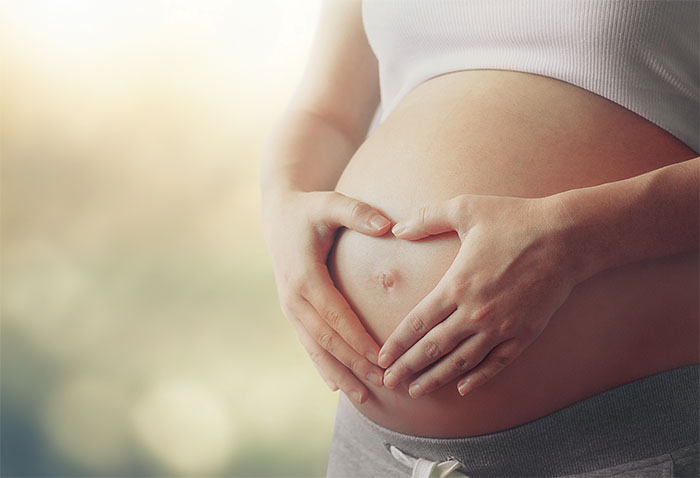

In the period after bariatric surgery, you may notice that you are losing more hair than usual. This condition, which is one of the side effects of obesity surgery, may occur due to your body’s reaction to the surgery, excess weight loss and changing your diet.
Hair loss associated with weight loss surgery is called telogen effluvium. It usually starts suddenly and usually lasts less than 6 months.
Hair loss can be seen among the side effects that patients who have bariatric surgery. However, it is important to know the underlying cause of this situation and to determine whether the factors that change with the surgery have an effect. Thus, the appropriate treatment method can be determined.
In a study conducted on 42 female patients in 2014, hair loss after gastric sleeve surgery was examined. 41% of the participants in the study experienced hair loss after surgery. In the study, it was determined that most of the participants who experienced hair loss had low levels of zinc and iron, and therefore zinc supplements reduced hair loss in most participants.
In another study, the relationship between hair loss and bariatric surgery was examined, and as a result, it was determined that young women and people with low amounts of zinc, folic acid (vitamin B9) and ferritin (protein) encountered hair loss most frequently.
In order to understand the cause of hair loss, it will be useful to focus on the growth cycle of the hair.
Human hair basically has a two-stage growth cycle. The growth phase is called anagen, and 90% of our hair follicles are in this phase at any given time. This cycle can last from 2 to 8 years. The resting phase is called telogen, which lasts about 1 to 6 months, with an average of 3 months. About 5-15% of our hair is in the telogen phase. Due to the expected hair growth cycle, it is normal to lose an average of 50-100 hairs per day, as they are in the telogen phase. These hairs then grow back.
However, sometimes, hair can enter the telogen phase out of the cycle due to reasons such as surgery, stress, trauma, pregnancy, rapid weight loss, diet. This condition is called Telogen Effluvium.
It is also known that telogen effluvium is related to stress in the body and hormonal changes that may occur. More hair follicles may enter the resting phase due to stress. This is important because the hair in the resting phase during surgery is the hair that will most likely fall out. For this reason, your hair will fall out 1 to 6 months (usually about 3 to 4 months) after the surgery. When the hair starts to grow again, the old hair follicle is released and the hair falls out.
Changes in diet, the body’s response to surgery, sudden weight loss, malabsorption depending on the type of bariatric surgery are just a few reasons why people lose hair and develop telogen effluvium. This condition occurs several months after a major change in your body. Your body directs nutrients from your hair to your vital organs.
It does not cause complete hair loss or even visible bald spots. You may just experience more hair loss than is typical for you.
Hair loss may occur in any bariatric surgery, but some surgeries may cause increased hair loss as it affects absorption.
Restrictive surgeries such as sleeve gastrectomy and gastric bypass do not prevent your body from absorbing nutrients, but they can still cause hair loss.
Complex procedures such as malabsorptive surgeries, duodenal switch, Roux-en-Y gastric bypass permanently affect the way you absorb nutrients and may require lifelong supplementation.
Completely preventing hair loss after bariatric surgery can be very difficult as it is the body’s natural response to surgery, significant weight loss, and changes in diet. However, there are ways to reduce the amount of hair loss.
Consume enough protein. Protein is the building block of all your cells. This includes the cells that make up your hair. Protein also aids in wound healing. That’s why it’s important to have enough protein in your diet after surgery. Add protein-containing supplements to your meals with the advice of our expert dietitian. Avoid more protein than recommended, as it can affect your weight loss plan.
Vitamin deficiency after bariatric surgery is one of the main causes of hair loss. Take nutritional supplements as recommended by your doctor and dietitian. You can take zinc, iron and vitamins A, B9 and C as supplements. But avoid overusing supplements that can cause further hair loss. Studies have shown that excess vitamin A and E and selenium shows that it can lead to more hair loss.
Don’t panic. This is a normal situation. Your hair that has been shed due to bariatric surgery will grow back. But if you still notice significant hair loss after 6 months or a year, contact your doctor. This may be a sign that your body needs more nutrients.
You may review our post about what to eat after bariatric surgery.










The information, images and comments on the surgical operations mentioned on this website are for informational purposes only. The decision on diagnosis, treatment and follow-up methods will be made by the doctor.